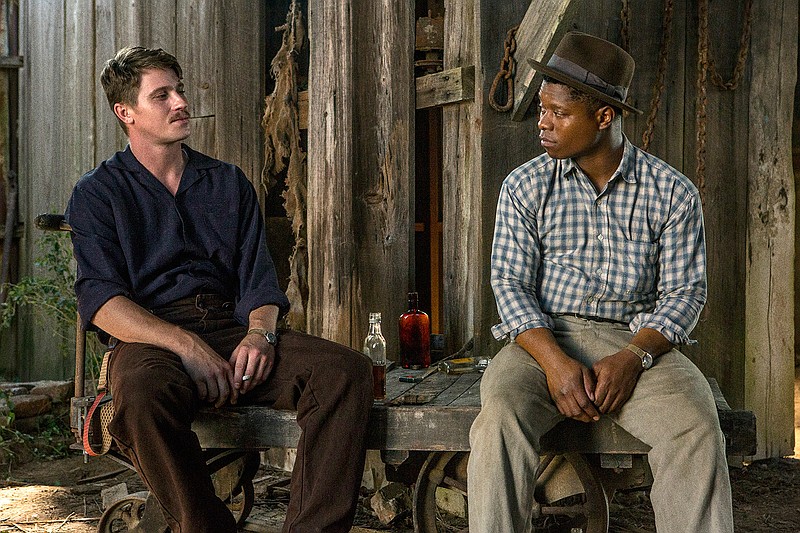"Mudbound," directed by Dee Rees, was released on Netflix in late 2017 and would have looked glorious on a big screen. But the power of this film is in how it makes a small screen feel expansive; you get lost in its story and its faces, forgetting the present in order to get lost in the past.
"Mudbound," set in the 1940s rural South, is a movie about big issues - race, inequity, the weight of history, what it means to love the wrong person, parenthood, family. But, like all great movies, it lives in its tiny moments: two mothers exchanging an almost imperceptible nod; a little boy saluting a uniformed young man as they both ride in the "colored" section of the bus; a family crossing a bridge whose water is dark with mud, as if they're leaving hope behind.
Based on a 2008 novel by Hillary Jordan, "Mudbound" is the story of two families; one white, one Black. The McAllans - Henry (Jason Clarke), Laura (Carey Mulligan) and their young daughters - are new to the unwelcoming landscape of a Mississippi farming town; all Laura sees are desolate wet fields and dirt. ("I dreamed in brown," she muses, in a voice-over throbbing with quiet desperation.) The Jacksons - Hap (Rob Morgan), Florence (Mary J. Blige) and their children - are sharecroppers on the farm Henry has impulsively bought. These two households, warily eyeing each other, have something else in common: a family member just home from the war. Henry's brother Jamie (Garrett Hedlund) and the Jacksons' oldest son Ronsel (Jason Mitchell), both still literally trembling from the battlefield, forge something resembling friendship, even as they note the very different welcome the town gives them.
Jordan's novel lets the six main characters (Henry, Laura, Hap, Florence, Jamie and Ronsel) speak in first-person narration, in alternating chapters; Rees' screenplay, written with Virgil Williams, follows that structure. Everyone gets a bit of voice-over - we slip in and out of the characters' heads - and Rees masterfully lets every relationship develop. We watch an array of ever-changing pairs; not just Ronsel and Jamie but Laura and Florence (two mothers who on an unspoken level understand each other), Jamie and Henry (two brothers in constant competition), Hap and Henry (uneasily unequal as they both work the land), Laura and Jamie (who find themselves romantically drawn together), Florence and Ronsel (a quiet picture of unconditional love). Add Henry and Jamie's viciously racist father (Jonathan Banks) - who, tellingly, does not get his own voice-over, in the book or film - to the mix, and you have both a rich, simmering stew of character, as well as an uneasy sense that tragedy is on the horizon.
"Mudbound" is not always an easy watch; its final act shows a horrifying scene of racist violence (that simmering pot finally boils over), and while its ending is determinedly hopeful, you leave the film haunted by the injustice it depicts. But the impact comes both from the message and the art. Rachel Morrison's stunning cinematography (she became the first woman ever nominated for an Academy Award in this category) shows us an eerie, hanging twilight; moody daylight skies with ragged clouds; lingering sunsets; mud and rain that seem to merge as one. The score, by Tamar-kali, seems to writhe and twist with the characters' emotions. And the actors beautifully disappear into their characters, particularly Mulligan (with a note-perfect, weary American accent), Blige and Mitchell.
Rees's 2011 debut feature, "Pariah," was a little-seen gem, a nuanced coming-out story about a young Black lesbian figuring out what to do with her new identity. Six years later, "Mudbound" likewise flew under the radar, despite an Oscar campaign (rare then for Netflix movies) resulting in nominations for Morrison, Rees/Williams (adapted screenplay), Blige (supporting actress) and Raphael Saadiq, Blige and Taura Stinson (original song, "Mighty River"). I watched it when it came out in 2017, and again this month; it already feels like a classic. Many movies, watched at home, seem smaller and more contained. "Mudbound," even on a small screen, soars.

